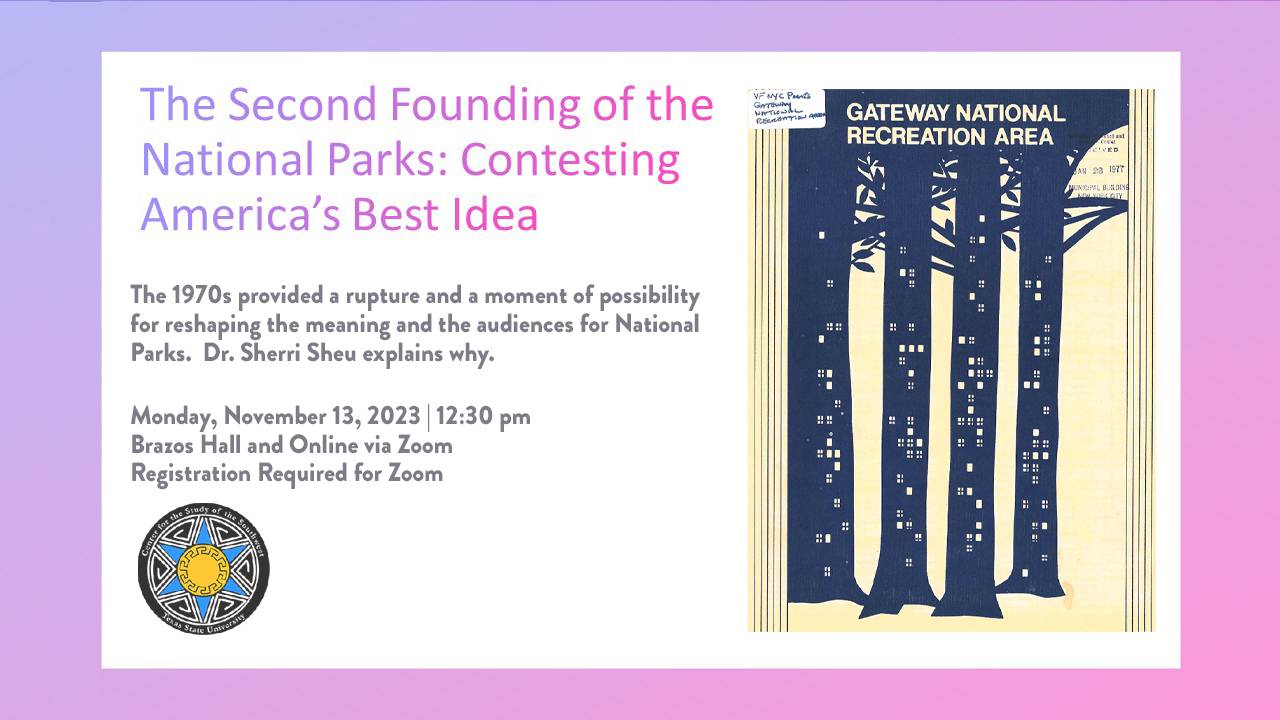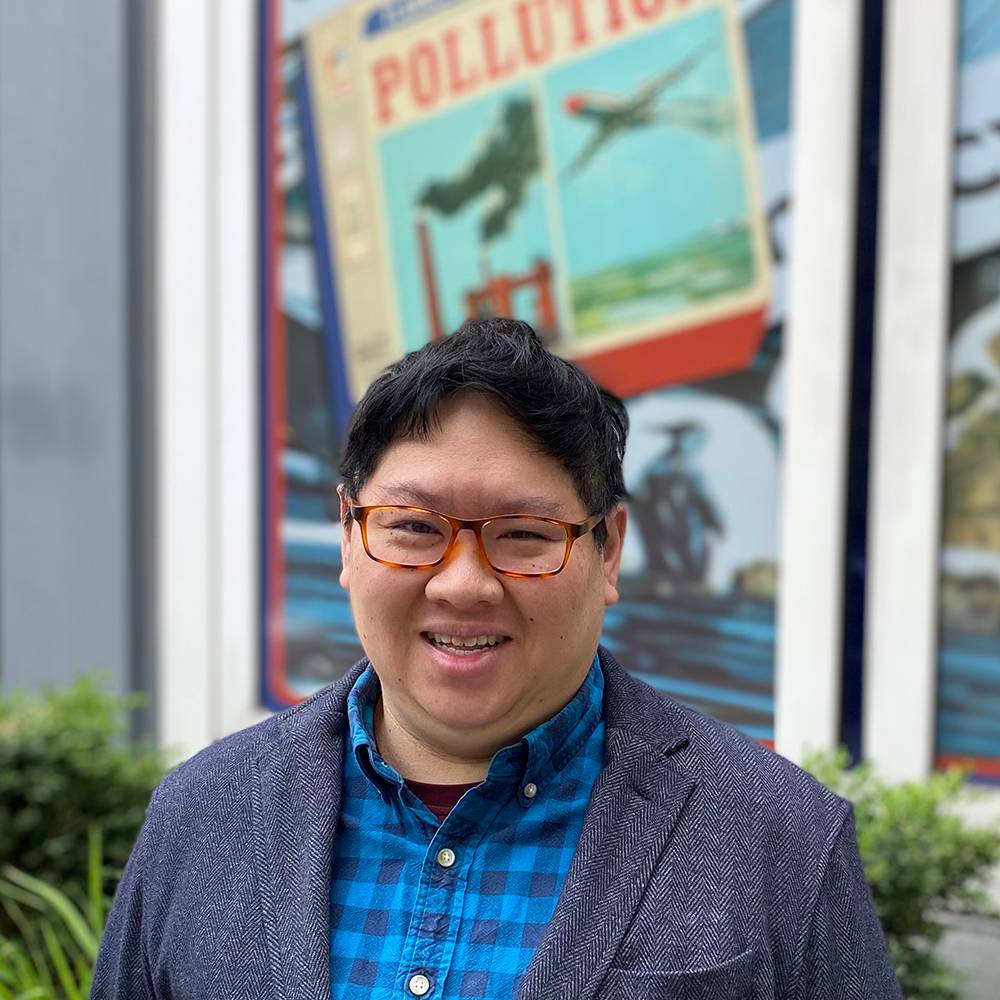The Second Founding of the National Parks
Sherri Sheu
Hass Curatorial Fellow, Science History Institute in Philadelphia
Monday, November 13, 2023 | 12:30 pm
Brazos Hall and Online via Zoom
Registration Closed
Contesting America’s Best Idea
Sherri Sheu
Hass Curatorial Fellow, Science History Institute in Philadelphia
Monday, November 13, 2023 | 12:30 pm
Brazos Hall and Online via Zoom
Registration Closed

The national park system of the United States is often lauded as one of the nation’s finest institutions. Yet, for many, the national parks represent exclusionary places and landscapes, and sites of dispossession. Sherri Sheu’s book project, “The Second Founding of the National Parks: Contesting America’s Best Idea in the 1970s” documents how the 1970s represented both a moment of rupture and a moment of possibility for reshaping the meanings and audiences of the national parks.
During the Seventies, the questions of who belonged in the national parks and who they might serve became a deeply contentious topic reflective of the deep divisions in the country writ large. In Washington, DC, the Park Service used social programs to remake parks in Washington, DC after the 1968 urban uprising. In Yosemite Valley, young people rioted on the Fourth of July in 1970, forcing the agency to accommodate the needs of youth visitors. During the Occupation of Alcatraz Island, Native American protestors vehemently rejected a proposal to build a national park on the island. In the wake of the Stonewall Riots, LGBTQ+ communities tried to expand the national parks to include their identities even as the Park Service heavily surveilled and policed queer spaces.
Activists and administrators challenged the parks to serve and reflect new audiences and stakeholders, rather than catering to affluent, White, heterosexual audiences that the national parks traditionally served. Occupations, riots, and even public displays of sexuality became tools of protest among people long excluded from national parks. Simultaneously, the Park Service made extensive forays into reshaping American life by reaching beyond park boundaries and into the everyday lives of Americans outside of parks through educational programs. This portrait of the national parks during the Seventies demonstrates a moment of possibility for the national parks to become more democratic and more inclusive of a broad American public.
 Sherri Sheu is the Hass Curatorial Fellow at the Science History Institute in Philadelphia. Sheu has long taken an interest in questions of history, nature, race and the environment. Dr. Sheu is a graduate of the University of Georgia, the University of Texas at Austin, and the University of Colorado Boulder. Sheu has received research fellowships from the Smithsonian Institution and the Newberry Library, and is a recipient of the Charlotte W. Newcombe Fellowship from the Institute for Citizens & Scholars. Along with Bart Elmore and Rachel Gross, Sheu is the co-editor of Big Box USA: The Environmental Impact of America’s Largest Stores (University of Wyoming Press), which will be published in February 2024.
Sherri Sheu is the Hass Curatorial Fellow at the Science History Institute in Philadelphia. Sheu has long taken an interest in questions of history, nature, race and the environment. Dr. Sheu is a graduate of the University of Georgia, the University of Texas at Austin, and the University of Colorado Boulder. Sheu has received research fellowships from the Smithsonian Institution and the Newberry Library, and is a recipient of the Charlotte W. Newcombe Fellowship from the Institute for Citizens & Scholars. Along with Bart Elmore and Rachel Gross, Sheu is the co-editor of Big Box USA: The Environmental Impact of America’s Largest Stores (University of Wyoming Press), which will be published in February 2024.